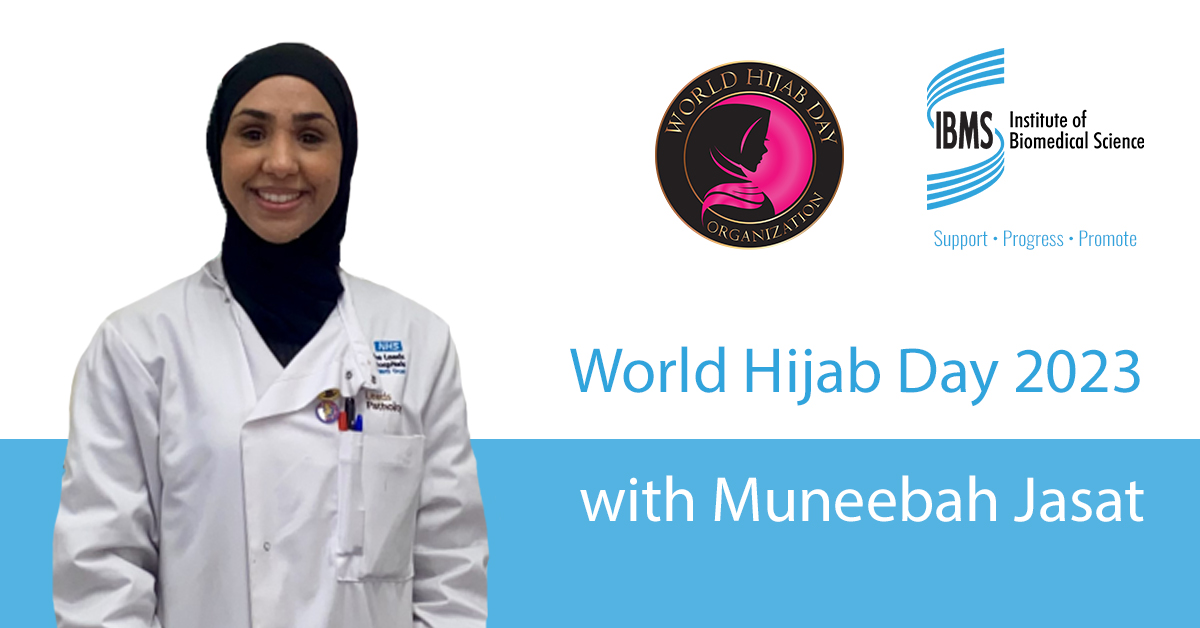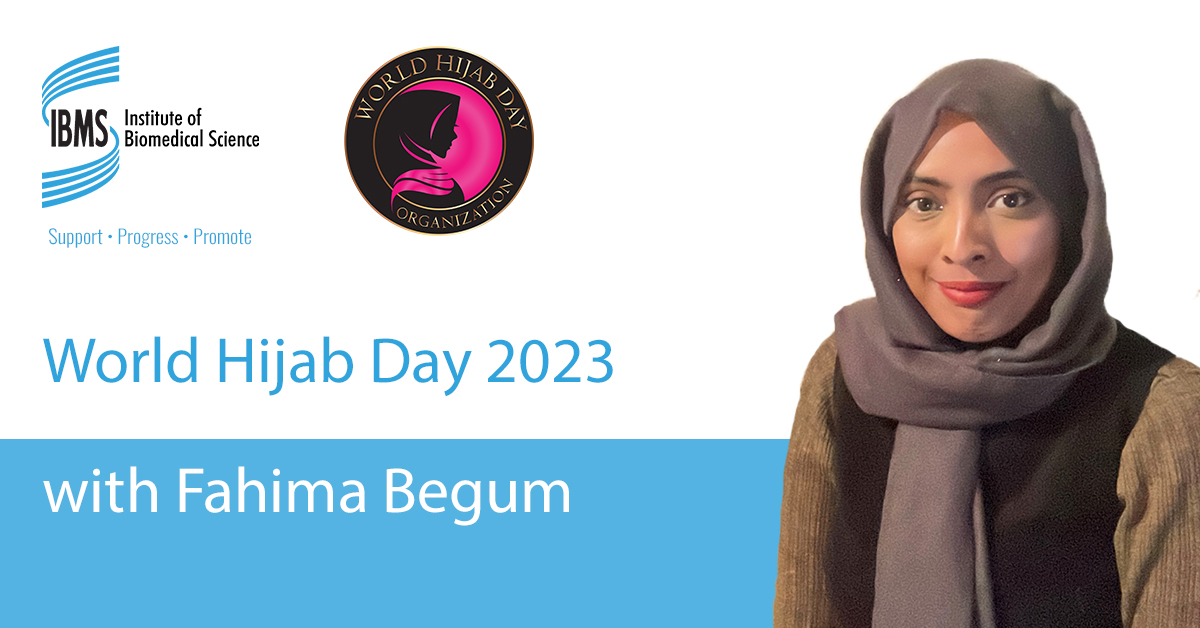World Hijab Day 2023

The hijab is a traditional head covering worn by Muslim women. It is said to be a symbol of modesty, privacy and morality, and is worn to cover the hair, ears and neck. It can also be viewed as a way to assert Muslim identity and express modesty, dignity and respect.
We talked to some of our members about wearing the Hijab:

Muneebah Jasat
What does wearing the hijab mean to you?
Hijab is part of my identity. It is a reminder to myself of the way I chose to represent myself. It is part of my strength and it is a sign of devotion to my faith. The hijab empowers me as it ultimately gives me the power to choose how I show myself to the world and what I want the world to see. It is my motivator to break down stereotypes where I can. It is my motivation to be the best version of myself. I also wear the hijab in solidarity with those women across the world who do not have that right due to the political regimes they live under.
Being a Muslim woman wearing the hijab, have there been any challenges you have faced in your career and the profession?
I myself have not faced overt challenges. However, when I hear stories of other Muslim women being discriminated against in a professional setting for wearing a hijab, I naturally wonder if this will hinder my own professional career.
When I have been interviewed in the past for a trainee position, some anxieties stemmed from my decision to wear the hijab. I thought I would be judged for the clothing that covers my hair. I would stand in front of the mirror, trying out different styles of wearing the hijab. It takes a fair bit of discipline to wear the hijab.
Who has been your inspiration and what advice would you give to others in the Biomedical Science field?
My first inspiration is my mum, who has constantly supported me whenever I have faced difficulties. She is my biggest fan and motivator. ‘Now shine even brighter’ is her tagline every time I hit a milestone or step out of my comfort zone. In my professional career thus far Zoe Andrews, Sherri Scott, Tahmina Hussain and Cherie Beckett are four women who have been an inspiration to myself. They are a reminder to me that I should unapologetically be myself.
For those in Biomedical Science and wanting to pursue a career in this field, the road may seem long and tough. If you put in the work, preparation, research and networking, you can achieve it. The best advice I can give is not to give up. Keep on trying. Take rejection and failure as a lesson for improvement, work on yourselves and come back stronger.

Fahima Begum
What does wearing the Hijab mean to you?
Being a Muslim goes beyond wearing a hijab but it is significant part of my identity. I’ve been wearing the hijab since I was young and it has become part of who I am, especially in the outside world. For me personally it makes me feel more confident and closer to my religion, which is the most important thing to me.
Being a Muslim woman wearing the hijab, have there been any challenges you have faced in your career and the profession?
I can honestly say no. In my journey of becoming a Biomedical Scientist, I have worked in many organisations with many different people and I have found the places and people to be very supportive in helping me achieve what I want to in this competitive field. I have never felt the hijab has limited me in achieving my goals but of course there have been struggles as there is in any walk of life but not ones related to me wearing a hijab.
Who has been your inspiration and what advice would you give to others in the Biomedical Science field?
I would be lying if I said representation didn't matter. Seeing women in hijab and women in general in leadership roles inspires me to continuously work on myself and aim high. I have been lucky enough to work with brilliant and kind people, both in senior leadership roles and those from different levels of seniority and I have learned so much from them along the way.
In terms of advice, I can't emphasise how important it is to take control of your own personal development and never underestimate yourself. There are many courses available, some are free but some are not so I would encourage you to speak to your manager to support you in this and remember this investment is not just for you but also for the company.
Biomedical Science as I have said before is a competitive field but a collegiate one. Don't be afraid to ask questions, no matter what stage you are in your career and always pass on your knowledge to improve patient care.
Anonymous member
What does wearing the Hijab mean to you?
Simply put, it’s my crown and my modesty. This piece of cloth on my head forms part of my identity and allows me to feel safe and empowered. When I wear my scarf, I represent not just myself but my faith, it is a form of worship that continuously protects and guides me.
Being a Muslim woman wearing the hijab, have there been any challenges you have faced in your career and the profession?
I don’t think there has been any challenges for me as a hijabi in my career. However, I clearly remember the very first day I started wearing the hijab. My manager at the time, danced in front of me and said “don’t ask for a black lab coat and don’t be coming in as a letter box”. I was 19 at the time, I laughed along with him, looking back and reflecting I think it was a nervous laugh as I didn’t know how to react. This is going back 20 years. I was the very first Muslim member of staff to be employed in the pathology department in the hospital. I would like to think that I have changed mind sets and encouraged conversations regarding my religion and hijab, hopefully paved the way for others.
Who has been your inspiration and what advice would you give to others in the Biomedical Science field?
My very first manager I worked for as an MLA, and then as trainee BMS, he was always empowering us all, to achieve the best we can, motivated us and encouraged us. I feel career progression is slow and you have to make it happen.
The advice I would give others coming into the profession is come and visit a laboratory first, still to this day I feel access to pathology laboratories is minimal for students at college and it is very important this takes place. An insight into how a laboratory operates, the people and equipment involved will help equip those that are looking to progress into this career pathway and make the right decisions.
